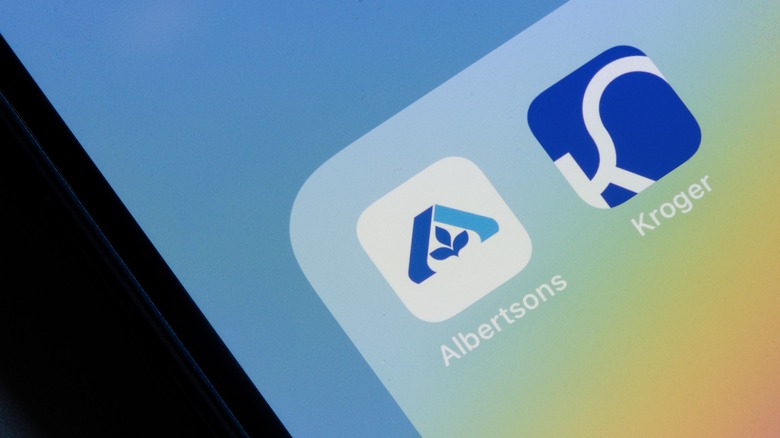A Look Into Why The Kroger-Albertsons Merger Hasn't Happened Yet
The potential 2024 merger between Kroger and Albertsons – Kroger agreed to purchase its competitor for almost $25 billion dollars — received plenty of pushback when it was first announced in October 2022. Consumer advocates speculated that the merging of the two supermarket giants would lead to increased prices in a time of already rampant food inflation, and democratic party senators Bernie Sanders and Elizabeth Warren both publicly backed the blocking of the acquisition by federal regulators, according to CNN Business.
If the merger ultimately goes through, Kroger would control approximately 5,000 supermarkets nationwide, including Albertsons' subsidiaries such as Safeway and Ralphs. However, as The New York Times noted at the time of the initial announcement, the deal is by no means a certainty, even if it's okayed by regulators. That process is still under review. Reuters reported last month that the Federal Trade Commission had asked Kroger to supply more information about the proposed merger.
It's not just regulators that could scuttle the merger, though. The financial implications of the deal are enormously complex and complicated further by Albertsons existing debt, which, per Seeking Alpha, currently exceeds $13 billion dollars. Other complicating factors include possible legal actions and the fact that the two supermarket chains are largely unionized, per CNN. It should come as no surprise, then, that a Washington D.C.-based research company well-versed in these sorts of mergers gives this one only a 35% chance of actually happening, per The New York Times.
What's still ahead for the potential Kroger-Albertsons merger
The CEOs for Kroger and Albertsons appeared before the U.S. Senate back in November to answer questions about the proposed merger, per NPR. The regulatory review is in progress, as previously noted, but according to The New York Times, the two supermarket giants believe the merger will be approved sometime this year, albeit with strings attached; Meaning, a few hundred supermarket stores may have to be sold off. So what still has to happen for the merger to be completed, as planned, in 2024?
A lot, actually. One potential legal hurdle was recently cleared when the state of Washington's Supreme Court refused to hear a case that could have blocked $4 billion in dividend payouts to those with stock shares in Albertsons, The New York Times reported. This included Cerberus, a private equity firm that is a major shareholder in Albertsons and stands to see substantial payouts through dividends — and even more substantial payouts if the merger eventually goes through.
The merger is also still being challenged by union leaders from the United Food and Commercial Workers, notes Seeking Alpha. The powerful union is worried about lost jobs for their members in the event regulators mandate the sale of hundreds of supermarkets. This potential divestiture is what most complicates the merger's chances of success moving forward, since, as The New York Times notes, it's unknown how many stores may have to be divested and what that could do to stock prices.

